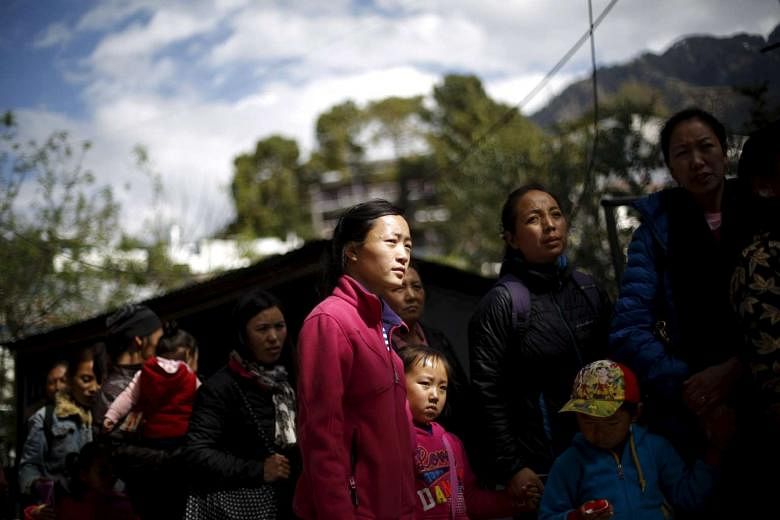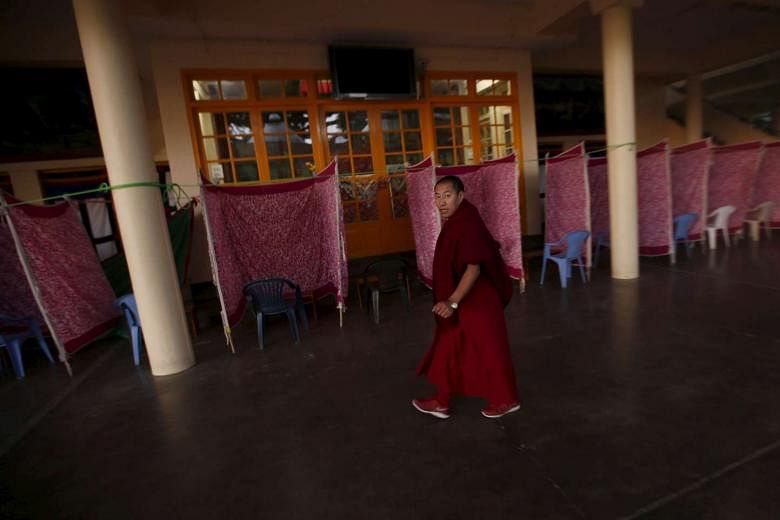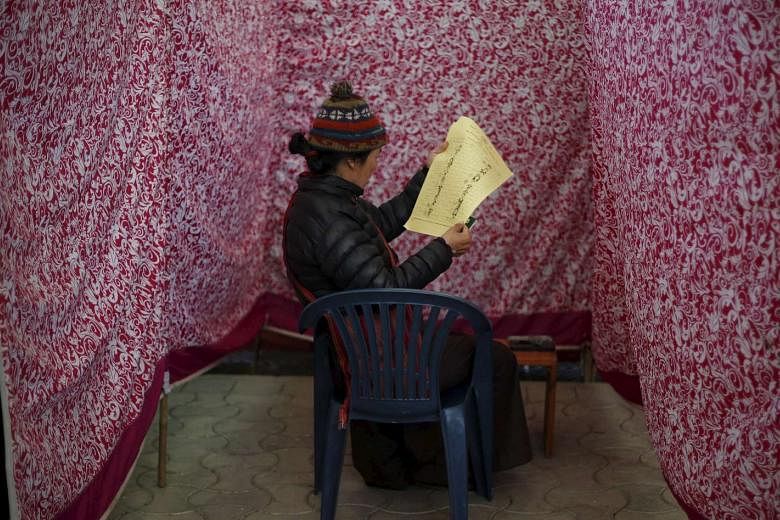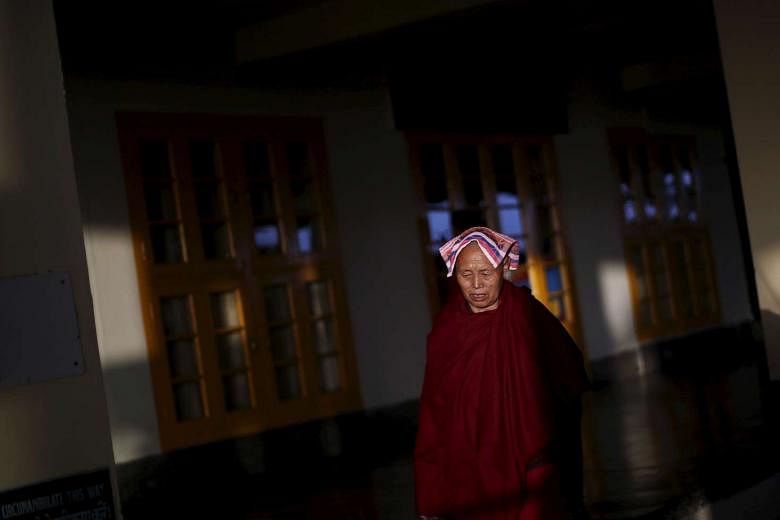DHARAMSALA (Reuters, AFP) - Exiled Tibetans across India and overseas started voting on Sunday to elect a political leader for the next five years, in a bid to help sustain their struggle to secure complete autonomy for Chinese-ruled Tibet.
Men and women in colourful dresses formed long queues outside temporary polling booths in a Buddhist temple in Dharamsala, a town in India's Himalayan foothills where a community of Tibetans lives in exile with the Dalai Lama.
The contest will decide who leads the parliament of the Central Tibetan Administration (CTA) in Dharamsala.
Exiled Tibetans consider the CTA to be their legitimate government, but no country recognises it. China has lobbied to sideline the Dalai Lama from the international circuit, although he did address an audience in Geneva last week despite those efforts.
The second such election follows a decision by the Dalai Lama, the 80-year-old Nobel Peace Laureate, to relinquish his political authority and vest it in a democratic system that could outlast him.
He announced his decision in March 2011, just days before the election of the incumbent prime minister - or Sikyong - Lobsang Sangay, who is standing again.
The 48-year-old Harvard-educated former academic is regarded as the front-runner, having already beaten off three of the four other candidates in a first round of voting last October. Both he and his one remaining opponent, Penpa Tsering, 49, favour the "middle way" approach of the Dalai Lama that advocates seeking greater autonomy for Tibet peacefully.
In all, 88,000 Tibetans in 13 countries from Australia to the United States are registered to cast ballots for a prime minister and the 44-member parliament-in-exile.
Many voters, like Sangay, have lived all their lives in exile and never visited Tibet.
One of the eliminated candidates, Lukar Jam Atsok, spent time as a political prisoner in China and had threatened to make waves with his more aggressive policy of advocating complete independence.
On policy, there is relatively little to choose between Sangay and his remaining opponent, and opinions on the streets of Dharamsala were mixed in the run-up to Sunday's vote. Many said they would stick with Sangay.
But some who voted for him in 2011 said they had been disappointed by his performance in office. "I will vote for Penpa Tsering, who has decades of experience serving in the Tibetan government in exile and in the Tibetan community. He will have more substance," said Lhadon, a 55-year-old woman who did not give her full name.
Tsering was born in India and has served in the Tibetan parliament-in-exile based in Dharamsala for 10 years, where he is currently the speaker.
Whoever prevails can expect to remain in the shadow of the Dalai Lama, a Nobel peace laureate who remains the most potent rallying point for Tibetans, both in exile and in their homeland.
The Himalayan hill town has been home to him and thousands of Tibetan refugees since he fled Tibet in 1959 after a failed uprising against Chinese rule.
Despite the Dalai Lama's status, many exiles said it was important to vote. "The election is really important. It is a basic right of a citizen to vote and we take this opportunity as a blessing," said Sonam, a 22-year-old Tibetan student in Nepal who did not give her full name.
She expressed hope the Nepal government would allow voting to go ahead after authorities confiscated ballot boxes in 2011, apparently under pressure from neighbouring China.
China has widely been seen as waiting for the Dalai Lama's death, believing that the movement for Tibetan rights will not survive without its charismatic and world-famous leader. Tibetan Buddhism holds that the soul of a senior lama is reincarnated in the body of a child after he dies. China says it must sign off on the reincarnation of the Dalai Lama.
The globe-trotting Buddhist monk raised concern among his millions of followers last year when he scrapped a tour of the United States for health reasons.
Asked about Sunday's election, Chinese foreign ministry spokesman Lu Kang said Beijing had never recognised the government-in-exile and hoped other countries "will not provide any stage for Tibetan separatist activities".
Election results will be out between April 27 and 28, with more than half of the 90,377 eligible voters expected to exercise their franchise, according to the election commission.





